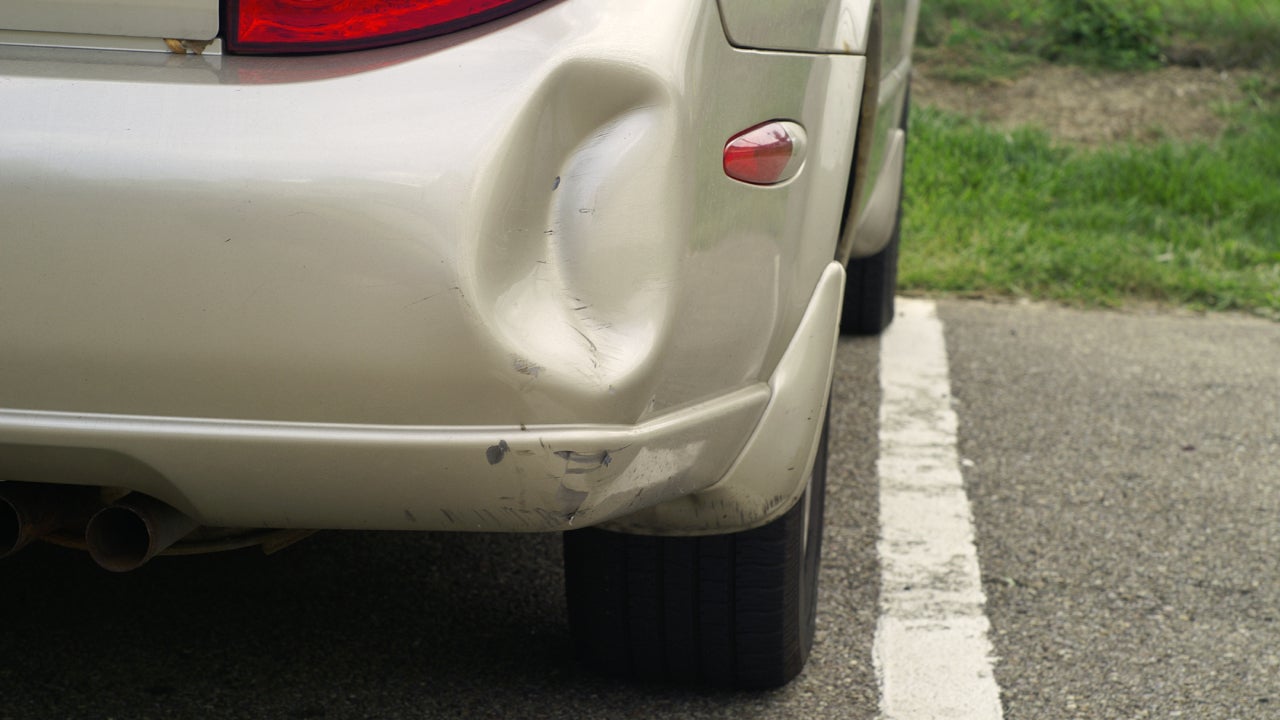What is an insurance claim and when should you file one?




Filing a car insurance claim unfortunately means that you’ve experienced or caused vehicle damage. The good news is that you have auto insurance to cover part or all of the costs of this damage. You may need to file a car insurance claim even if you aren’t at fault for the damage, but the circumstances of your claim will depend on the details of the accident.
What is a car insurance claim?
An auto insurance claim is essentially your way of notifying your insurance provider that you’ll need to use your policy to cover expenses after your car is damaged in a covered incident. The process varies from provider to provider, but how you file a car insurance claim usually begins with a phone call, filling out an online form or using your insurance company’s app to begin the process.
It’s important to note that you should file a claim as soon as possible after a car accident. You may even be able to start the process while you’re still at the site of the accident. You should file a claim whenever something happens that your policy would cover. So, for example, if you have comprehensive coverage and your car was vandalized or stolen, you would file a claim for the related loss.
Ultimately, filing an auto insurance claim will depend on the types of coverage you have. So let’s look at some of the most common coverage types:
- Liability coverage: This provides protection when you cause an accident or damage with your car. Most states require you to have bodily injury liability coverage if you hurt someone else and property damage liability coverage if you damage someone else’s car, fence, mailbox or other property while you’re behind the wheel.
- Collision coverage: While your liability coverage can pay toward fixing someone else’s car if you’re at fault in an accident and their liability coverage can pay toward fixing yours if they’re responsible, you may still require insurance to step in with paying for repairing or replacing your vehicle regardless of fault. That’s where collision coverage steps in.
- Comprehensive coverage: Comprehensive covers damage or loss to your vehicle that is not caused by an accident or damage that occurs when the car is not moving. This includes theft, vandalism or a fallen tree branch smashing your windshield. Comprehensive also covers you for hitting a deer.
The more coverage you add to your policy, the more you’ll likely need to pay in premiums. But you’ll also be protected against more risks, which means your car insurance claim might cover losses so you don’t have to.
When should I file an insurance claim?
Paying for your insurance policy every month may seem like a waste — until you need it. Here are a few key examples of when you may need to file an insurance claim:
When you’ll save money
You should consider filing a car insurance claim whenever your out-of-pocket costs would extend past your deductible. Reminder: your deductible is the amount you’ll pay out of pocket when you file certain claim types, like comprehensive or collision. For example, if you do serious damage to your car — say, you back into a dumpster and cause $1,500 of damage. If you have a $500 deductible, you’d really be receiving $1,000 for your auto insurance claim. In that instance, filing a car insurance claim could help save you money.
When you caused an accident or damage to someone else’s car or property
If your accident caused damage to anything other than your own car, you might want to file a claim. If the damage is minor, it might seem like something you can work out with the other driver or property owner independently. However, it’s often safer to connect with your insurer and file a claim through the proper channels. Your car insurance company has claim agents who can work with the agents of the other person’s company to ensure that the rights and responsibilities of each party are taken into consideration.
When someone has hit your car
If someone else hits your car, no matter who’s at fault, you should begin the claims process as soon as possible. If possible, gather as much information from the other driver as possible, including information on their vehicle and their insurance policy info. Get the contact information of any witnesses who are willing to give it and take photo and video evidence of the damage if you can. If you’re shaken up by the incident, keeping an accident checklist in your glove compartment can help you remember proper procedures.
When people were injured in an accident
If you’re in an accident with injuries, filing a claim as soon as possible is even more important. Your insurance company will need to have a full understanding of any medical costs involved in the accident to properly determine the payout amount it will provide. Even if it appears that no one is hurt in the immediate aftermath, those involved may later discover that they require medical attention, which can make it risky to avoid filing a claim.
Is there ever a time I shouldn’t file an insurance claim?
Even though it can be beneficial to go through the insurance claim process for the financial and legal protection it provides, there are a few times you may consider skipping it:
When the damage is minor
If you’re in a fender bender that leaves little damage to either car, you may not want to file a claim since it might increase your premium, no matter who is at fault. But be cautious here. If it’s truly a minor bump — say, you hit your brother’s car when backing out of your parents’ house and left a small dent in his bumper — you might be justified in skipping it. However, it can be challenging to reach an agreement with a stranger immediately. You might find that it’s easier to contact your insurer.
When you damage your own car
If you have damaged your car, you typically have a little more leeway in regard to filing a claim with your insurance company. Let’s say you’re in a one-car accident, perhaps you backed into a pole or sideswiped a cement barrier, and it results in your car having only minor damage. In these cases, you may be able to get the damage fixed for less than your deductible, so it may make more sense to pay for the damage yourself rather than make a potential premium-raising claim. If the damage is significant, though, you may want to consider contacting your insurer to get help paying for repairs.
When you don’t have the coverage type to cover the damage
You won’t be able to file an insurance claim unless you have the appropriate coverage type for the circumstances surrounding your accident. For instance, if you are at fault in a collision with another vehicle, you will need collision coverage — which is often optional — to file a claim for damage to your own car. The other driver can file a claim against your state-required liability coverage for the damage to their vehicle, but without collision coverage, you’ll be responsible for paying out-of-pocket for repairs to your own car. You can check the coverage types included in your policy on your declarations page, or you can contact your insurance company directly for clarification.
How will an insurance claim impact my car insurance rates?
Even if you are not at fault in an accident, your car insurance cost is likely to rise after you make an insurance claim. Why? Insurers are in the business of assessing risk, and it’s possible that they may consider you a higher-risk driver once you are involved in an accident, regardless of the circumstances.
Data from Quadrant Information Services shows that drivers with at-fault accidents on their records pay an average of 41 percent more for full coverage policies than drivers with clean records. The surcharge for a minimum coverage policy is similar, about 44 percent more on average for an at-fault accident. If your insurer raises your car insurance rate to a price out of your budget, you may consider comparing quotes from other providers.
But this isn’t always the case. Many insurers offer accident forgiveness. What this means exactly varies from insurer to insurer, but in general, it means your rates won’t go up after your first at-fault accident. Some insurers charge extra for this option while others include it in the basic policy. It’s worth considering looking for an insurer with this option if you have a clean driving record for at least the last three years.
What happens if a driver files against my insurance company?
You can generally expect an insurance claim to be filed against you if you were in an accident. Sometimes, though, this may come as a surprise, like if you were parked next to someone who notes damage on their vehicle. In such an event, your insurance carrier will contact you promptly once the other driver has filed a claim. Your insurer will take some time to review any police records and get in touch with others involved in the accident to determine fault for the incident. You can consult an attorney to ensure you follow the best course of action during this process.
If your insurance determines you are at fault for what happened, you will be responsible for paying your deductible and any expenses that exceed your policy limits. You may also see a spike in the cost of your annual premium at renewal.
Frequently asked questions
Why we ask for feedback Your feedback helps us improve our content and services. It takes less than a minute to complete.
Your responses are anonymous and will only be used for improving our website.
You may also like

Should I file an insurance claim for bumper damage?

How to get homeowners insurance after nonrenewal

What is a public adjuster and what do they do?

When to file a home insurance claim and how to do it


